Interdisciplinary Nature of Environmental Science
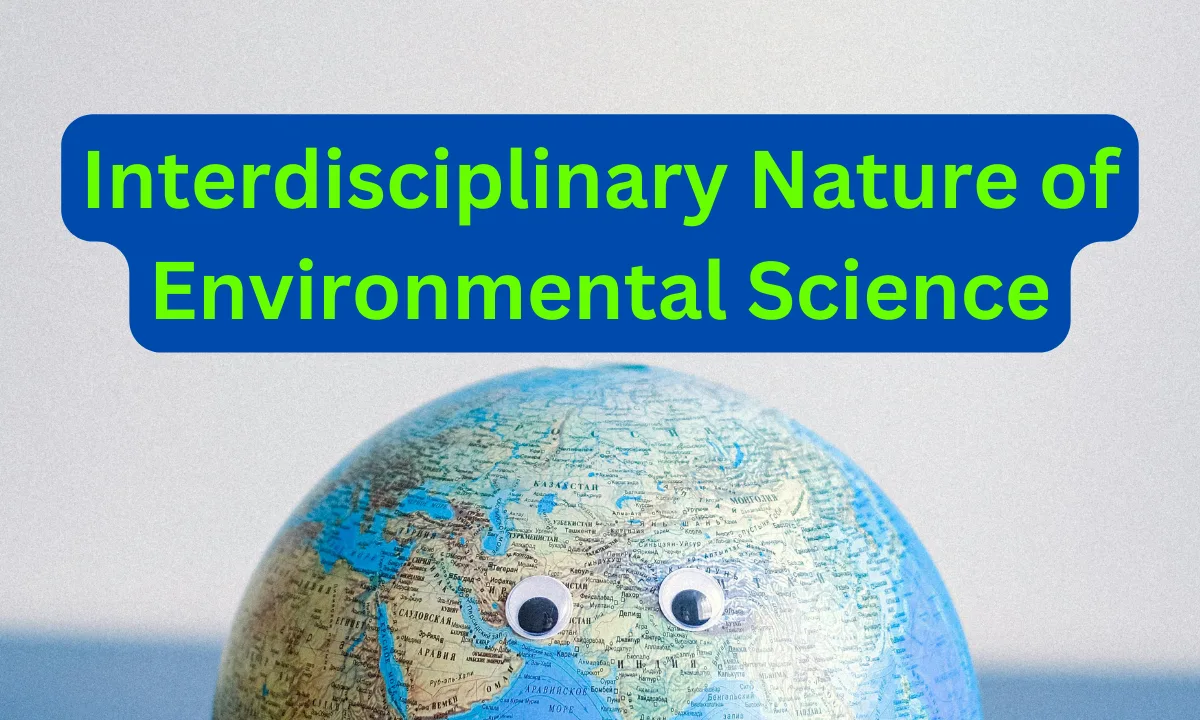
The Interdisciplinary Nature of Environmental Sciences means that Environmental Science is an interdisciplinary academic field that integrates with physical, biological, and social sciences to study environment and environmental issues and to find the solutions to tackle the issues.
The word “environment” generally refers to the surroundings that impact living things; or broadly, everything that affects a living thing throughout its life.
Living things, including humans, also impact their surroundings.
Since humans live in complex societies, environmental science also involves things like politics, how society is organized, money, what we think is right or wrong, and what are our believes about life, nature and existence.
In its interdisciplinary nature, Environmental Science involves inputs from various fields of study, from natural to social sciences, ethics, politics, sociology, engineering etc.
So, Environmental Science, as an academic field, becomes a mixture of regular sciences when it tries to determine what people value, how economy and development matters, what purpose nature serves and understanding how societies, sects, and politics work, all of which become important when it comes to living in ecosystems that supports the ‘life-system’.
Evolving Approach to the Study of Environmental Science
Environmental Science used to focus mainly on nature and how living things interacted with it. But now, we know that fixing environmental issues needs more than just science.
So the ideas from subjects like economics, sociology, politics, statistics, etc play a major influence. Therefore, Environmental Science has turned into a mix of different subjects now.
Major Fields Contributing to Environmental Science
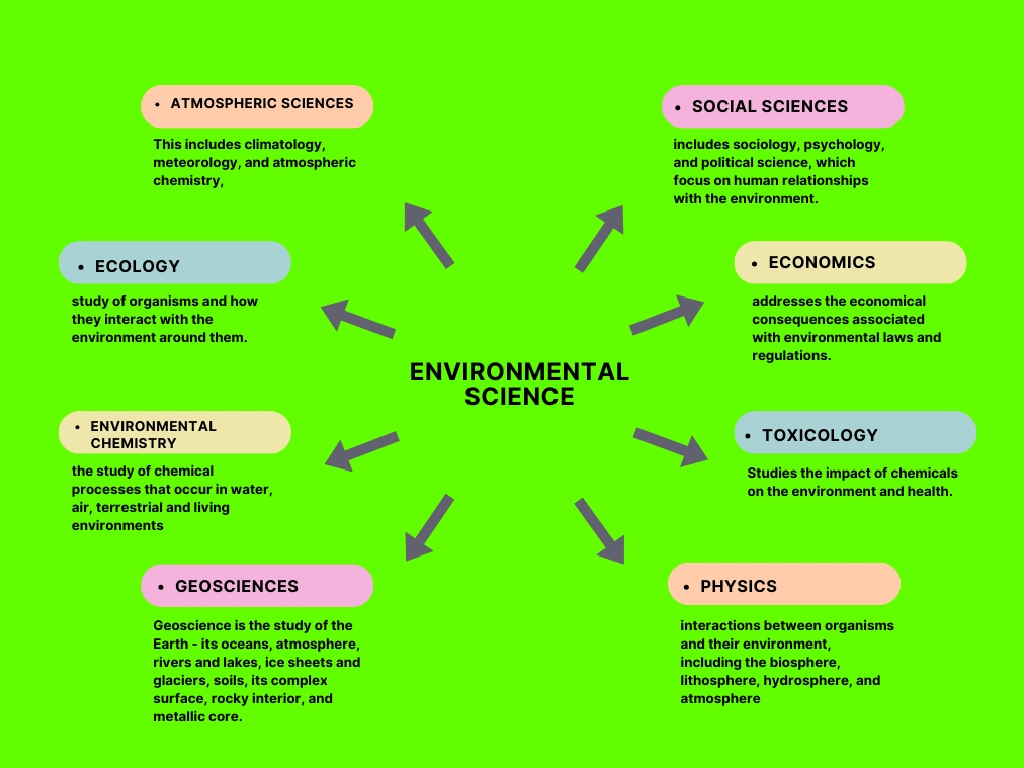
Environmental Science isn’t the Science of Environment but it is also about understanding how nature works, how money affects it, and how politics play a role.
Environmental science takes inspiration from different academic fields like biology, chemistry, physics, and sociology to understand how natural processes and human actions interact and to find holistic solutions to environmental issues like global warming, pollution, ozone depletion, climate change, etc.
When we make decisions about the environment, we often have to find a middle ground because what’s good scientifically or financially might not always be accepted politically. Sometimes, the choices politicians make about the environment don’t match up with what economists say.
Environmental science searches for practical applications in diverse fields; agriculture, forestry, oceanography, and engineering to name a few.
For instance, in agriculture, sustainable farming practices help preserve soil health and biodiversity.
The Earth is divided into sections by people, but nature doesn’t follow these lines. This makes it hard to fix problems because nature doesn’t care about borders. It’s better to work together in regions based on how nature is connected.
Also, since there are more people and we trade a lot between countries, some problems, like pollution and climate change, affect everyone in the world.
Each part of the world has its own issues because of how many people live there, how they use resources, and what is their lifestyle.
Environmental science is like looking at everything around us and understanding how humans and living things interact with their surroundings; all the different aspects like social, economic, biological, and physical factors that make up our environment.
Some of the major interdisciplinary subjects in Environmental Science are mentioned below:
- Environmental Physics
- Environmental Biology
- Environmental Chemistry
- Environmental Microbiology
- Environmental Toxicology
- Environmental Biotechnology
- Environmental Geography
- Environmental Geology
- Environmental Economics
- Environmental Sociology
Involves studying how humans affect the Earth and finding solutions to environmental challenges is what an Environmental Science degree teaches students.
Ecology, Environmental Studies, Environmental Engineering, etc are some of the fields for students and researchers looking at making a career in Environmental Sciences.
For example.
Environmental Chemistry: Looks at how human activities affect chemical processes in ecosystems. The subject deals with the study of the origin, transport, effects, and fate of chemical species present in the environment.
Environmental Physics: Studying the interactions between organisms and their environment, including the biosphere, lithosphere, hydrosphere, and atmosphere is done through Environmental Physics.
Environmental Biology: This field combines study of climatology, evolution, ecology, as well as the study of behavioral changes in living organisms caused by natural and human activities over time. The subject studies how organisms interact, evolve and adapt with and to changing environments.
Environmental Sociology: Environmental sociology is the study of human-environment interactions. It focuses on the cultural and social aspects of the Environment.
Environmental Geology: Environmental geology studies human interactions with the geological environment. It studies the soil, air, water, and rocks, etc in the context of how they play a role in the biosphere.
Environmental Geography: The field of environmental geography is concerned with the spatial aspects of interactions between humans and societies with the nature.
Environmental Microbiology: Microbiology is the study of microorganism. Environmental microbiology studies microorganisms in the ecosystems of the planet and their interactions with their surroundings.
Environmental Biotechnology: Environmental biotechnology uses, analysis and evaluates the natural environment with latest technological advancements for the betterment of mankind in an environmental-friendly development.
Environmental Health: Studies the relationship between humans and their environment to ensure well-being.
Environmental Planning: Involves decision-making for sustainable land development, considering environmental, economic, political, and social factors.
Environmental Economics: Environmental Economics addresses the economical consequences associated with environmental laws and regulations.
Environmental Law: Studies laws and regulations for the protection of the environment.
Ecology: Ecology studies the interaction of living and nonliving components in ecosystems.
Environmental Toxicology (ENTOX): Studies the impact of chemicals on the environment and health. The field is concerned with the harmful effects of various chemicals, biological, and physical agents on living organisms.
Environmental Forensics: Assesses chemical, physical, and historical facts to determine the origin of pollutants.
Other components of Environmental Science include the history and philosophy of the environment, biological resources, water resources, energy resources, the science of climate change, air and water pollution, atmospheric science, soil science, conservation biology, waste management, current environmental issues, occupational health and safety, remote sensing, GIS, instrumental analysis, analytical techniques, and research methodology.
Career Paths in Environmental Science
Environmental science is a growing academic and professional field mainly because of current-world issues like climate change, global warming and industrial pollution.
If you’re interested in pursuing a degree in this field, there are lots of career options.
The best thing about an Environmental Science/Studies or Environmental Engineering degree would be the skills you’ll pick up in the process. These skills, knowledge and research methods would be useful in many different areas in real life scenarios, not just in Environmental Science.
After getting your degree, you could work as a microbiologist, environmental scientist, environmental inspector, researcher, or environmental engineer.
One could get into resource management, environmental advocacy, health and safety jobs in different sectors, academic teaching, project planning and inspection, or in development of cities, towns, etc.
These jobs let you use the skills you’ve learned in resolving real-world problems for firms and companies, local authorities or communities.
In short, interdisciplinary nature of Environmental Science means this academic field is full of exciting opportunities.
Besides a professional career, the field allows nature loving people to bring about a change in their communities, raise Environmental consensuses and teach them how to care for and protect the planet.

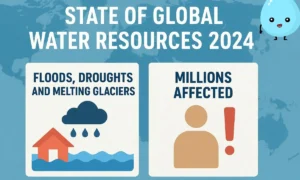
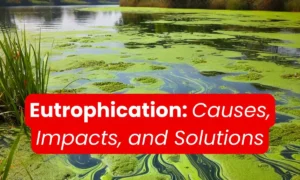

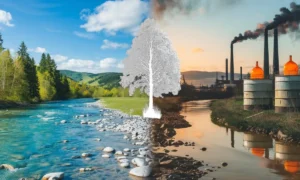
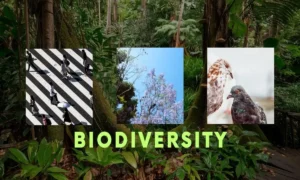
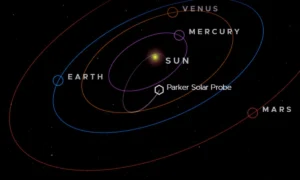
Thanks, I’m student
This was very Educating